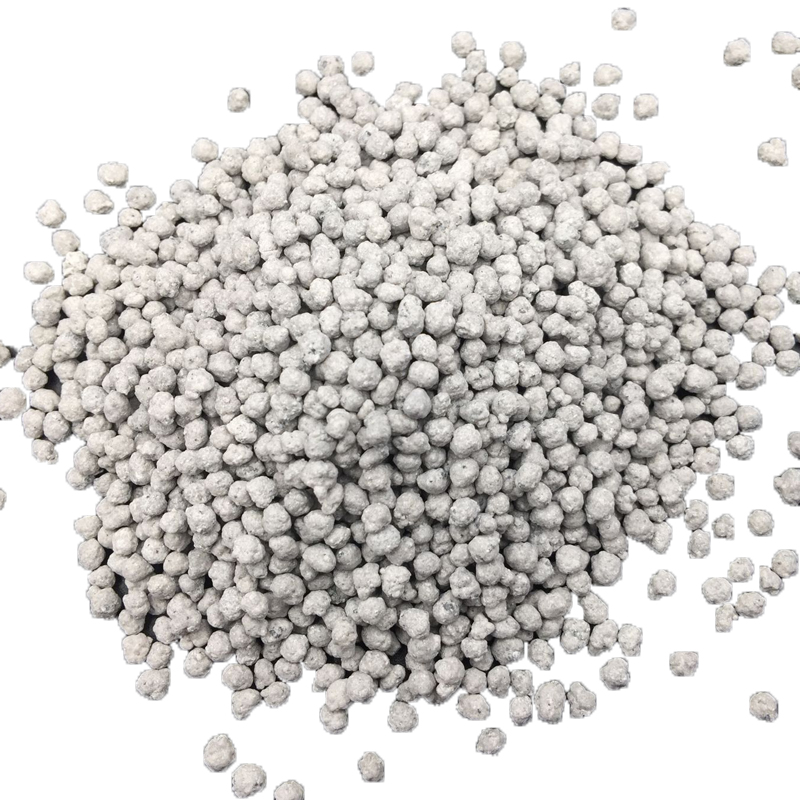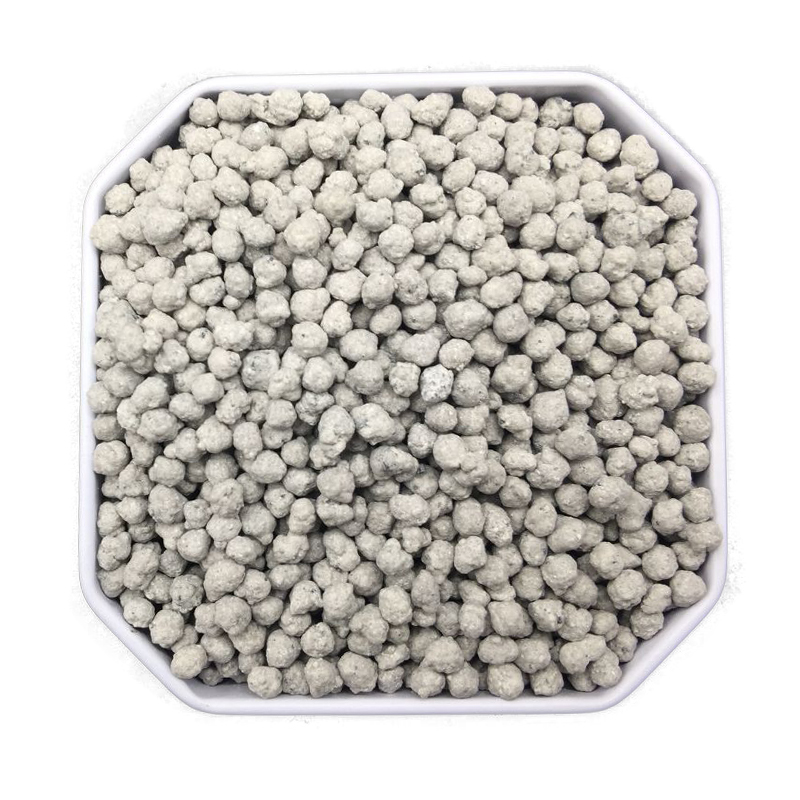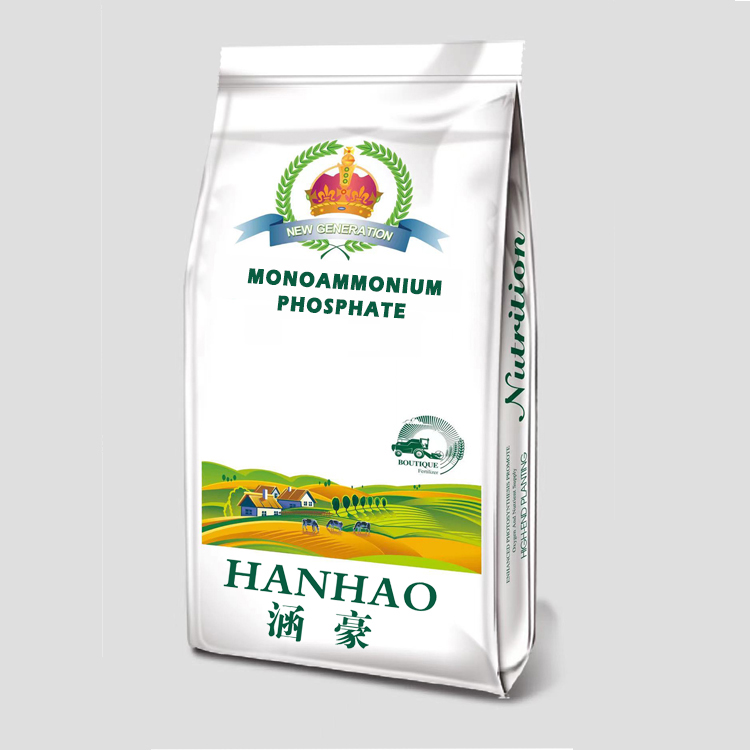
Sep . 12, 2025 07:40 Back to list
Premium 10 10 10 Organic Fertilizer for Balanced Plant Growth
The Strategic Advantage of Balanced Organic Fertilization
In modern agriculture, optimizing nutrient delivery while maintaining ecological balance is paramount. The demand for sustainable farming practices has significantly amplified the relevance of organic nutrient sources. Among these, the 10 10 10 fertilizer organic formulation stands out as a foundational solution for balanced plant nutrition. This article delves into the technical aspects, application benefits, and strategic implications of utilizing this precisely balanced organic NPK blend for enhanced crop performance and soil vitality.
A 10-10-10 NPK ratio signifies a fertilizer containing 10% Nitrogen (N), 10% Phosphorus (P₂O₅), and 10% Potassium (K₂O) by weight. This balanced profile is crucial for promoting robust vegetative growth, strong root development, prolific flowering, and improved fruit or grain quality across a wide spectrum of plant types and growth stages. When formulated organically, it offers the added benefits of soil health enhancement and environmental stewardship, aligning with global sustainable agriculture initiatives.
Industry Trends in Organic NPK Fertilizers
The agricultural sector is experiencing a significant shift towards organic and sustainable practices. Key drivers include increasing consumer demand for organic produce, stringent environmental regulations, and a growing understanding of soil microbiome health. This paradigm shift has propelled the market for organic fertilizers, particularly those offering balanced nutrition like 10 10 10 organic fertilizer. Farmers and agribusinesses are increasingly seeking alternatives to synthetic inputs to mitigate soil degradation, reduce chemical runoff, and enhance long-term soil fertility.
- Sustainable Sourcing: Emphasis on fertilizers derived from renewable organic materials such as composted manures, plant residues, bone meal, feather meal, and natural mineral sources.
- Precision Organic Nutrition: Development of granulated and water-soluble organic formulations, including 10 10 10 water soluble fertilizer, allowing for more precise application and nutrient delivery, minimizing waste.
- Soil Health Focus: Recognition that organic fertilizers contribute not just nutrients, but also organic matter, enhancing soil structure, water retention, and microbial activity.
- Specialized Blends: While 10-10-10 is a general-purpose blend, there's a trend towards specialized organic formulations such as organic 10 20 20 fertilizer for flowering/fruiting stages or organic 10 30 10 fertilizer for root development, catering to specific crop needs and growth cycles.
These trends underscore a commitment to ecological balance and agricultural productivity, positioning balanced organic fertilizers as a cornerstone for future farming methodologies.
Manufacturing Process of Organic 10-10-10 Fertilizer
The production of a high-quality 10 10 10 fertilizer organic blend involves a meticulous process focused on sourcing, processing, and blending diverse organic feedstocks to achieve the precise NPK ratio while adhering to organic certification standards. This is not a simple casting or forging process, but rather a sophisticated biochemical and physical transformation.
Process Flow Schematic:
-
1. Sourcing & Pre-processing of Organic Feedstocks:
Careful selection of certified organic materials. Nitrogen sources may include feather meal, blood meal, composted poultry litter, or alfalfa meal. Phosphorus sources often involve rock phosphate or bone meal. Potassium comes from langbeinite (sulfate of potash magnesia) or greensand. Materials undergo initial grinding, shredding, or composting to ensure homogeneity and bioavailability.
-
2. Precision Blending & Formulation:
Individual pre-processed organic components are weighed and mixed in precise proportions to achieve the target 10-10-10 NPK analysis. This step is critical and relies on sophisticated blending equipment to ensure a uniform distribution of nutrients throughout the batch.
-
3. Granulation (Optional but Preferred):
The blended material is often granulated using disc granulators or rotary drums. A binder, such as molasses or lignosulfonates, may be added to form stable granules. This improves handling, reduces dust, and ensures even application in the field.
-
4. Drying & Curing:
Granulated material is dried to a specific moisture content to prevent caking and improve storage stability. A curing period may follow, allowing the organic materials to stabilize further and initiate beneficial microbial activity.
-
5. Screening & Quality Control:
The product is screened to ensure uniform granule size, removing oversized and undersized particles. Rigorous quality control checks are performed, including NPK analysis, heavy metal screening, moisture content, and particle size distribution. Adherence to ISO 9001 (Quality Management) and organic certification standards (e.g., USDA Organic, OMRI Listed) is non-negotiable.
-
6. Packaging & Storage:
The finished product is packaged in durable bags, typically in sizes suitable for commercial or retail use, and stored in dry conditions to maintain integrity.
Target Industries & Advantages: The primary target industries are sustainable agriculture (field crops, specialty crops), horticulture (nurseries, greenhouses), and professional landscaping. Advantages include enhanced soil structure, improved water retention, sustained nutrient release, reduced chemical leaching, and long-term soil fertility build-up. The service life of the nutrients in the soil is extended due to slow mineralization processes, providing consistent feeding.

Granulated organic fertilizer, ready for application.
Technical Specifications and Parameters
Understanding the precise technical specifications of 10 10 10 npk fertilizer is crucial for effective nutrient management. While the NPK ratio defines the primary macronutrient content, other parameters contribute significantly to its efficacy and quality.
Typical Product Specifications: Granulated Organic 10-10-10 Fertilizer
Beyond the 10-10-10 ratio, manufacturers also offer formulations like 10 20 20 fertilizer, 10 25 10 fertilizer, and 10 30 10 fertilizer for specific crop requirements and soil test results, including variants like 10 26 26 water soluble fertilizer. The organic component ensures a slow, steady release of nutrients, reducing leaching and enhancing nutrient use efficiency compared to conventional synthetic fertilizers.
Application Scenarios and Strategic Advantages
The versatility of 10 10 10 fertilizer organic makes it suitable for a broad array of application scenarios, from large-scale commercial agriculture to specialized horticultural practices. Its balanced nutrient profile supports general plant health and development across various growth stages.
- Field Crops: Ideal for cereals, oilseeds, and legumes during initial growth phases to establish strong root systems and healthy vegetative mass.
- Vegetable Gardens: Provides comprehensive nutrition for leafy greens, root vegetables, and fruiting vegetables, supporting continuous harvest cycles.
- Orchards & Vineyards: Applied during dormant or early growth periods to build soil fertility and support overall tree/vine health, contributing to fruit quality and yield.
- Nurseries & Greenhouses: Excellent for potting mixes and container111 plants, offering sustained nutrient release to young plants.
- Lawn & Turf Management: For general lawn health and revitalization, though specialized options like 10 20 20 lawn fertilizer might be preferred for specific grass types or seasonal needs.
Technical Advantages:
- Sustained Nutrient Release: Organic sources break down slowly, providing a consistent supply of nutrients over an extended period, reducing the need for frequent applications and minimizing nutrient loss.
- Improved Soil Structure: High organic matter content enhances soil aggregation, leading to better aeration, water infiltration, and reduced compaction.
- Enhanced Microbial Activity: Organic compounds serve as food for beneficial soil microorganisms, promoting a vibrant soil ecosystem crucial for nutrient cycling and disease suppression.
- Increased Nutrient Use Efficiency (NUE): Reduced leaching and volatilization of nutrients mean more are available for plant uptake, leading to more efficient resource utilization.
- Environmental Stewardship: Minimizes the ecological footprint of farming by reducing reliance on synthetic chemicals, promoting biodiversity, and contributing to carbon sequestration.
- Root Development & Stress Tolerance: Balanced P and K, along with the synergistic effects of organic matter, promote strong root systems and enhance plant resilience against environmental stresses.

Precision application of granular organic fertilizer in a commercial field.
Vendor Comparison and Customized Solutions
When selecting a supplier for 10 10 10 fertilizer organic, B2B decision-makers must evaluate vendors based on more than just price. Key considerations include the source of organic materials, certification adherence, product consistency, and the ability to provide tailored solutions.
Key Differentiators in Vendor Selection:
- Organic Certification: Verification from reputable bodies (e.g., OMRI, USDA Organic) is non-negotiable for authentic organic products.
- Source Material Quality: Transparent sourcing of high-quality, uncontaminated organic feedstocks ensures product purity and effectiveness.
- Granulation & Consistency: Superior manufacturing processes result in uniform granule size, enhancing spreadability and nutrient distribution, crucial for products like 10 20 20 fertilizer for sale.
- Trace Mineral Inclusion: Leading vendors may enrich their 10-10-10 organic blends with essential micronutrients, providing a more comprehensive feeding solution.
- Technical Support & Agronomic Expertise: Reputable suppliers offer agronomic advice, helping clients optimize application rates and schedules based on soil tests and crop needs.
Customized Solutions:
While a 10-10-10 blend is balanced, specific soil conditions or crop requirements may necessitate adjustments. Many manufacturers offer customization options for large-volume clients:
- Ratio Adjustments: Tailoring NPK ratios (e.g., moving to a higher phosphorus organic 10 25 10 fertilizer for root crops or a potassium-rich blend for fruit development).
- Enrichment with Bio-stimulants: Incorporating humic acids, fulvic acids, or beneficial microbial inoculants to further boost soil health and plant vitality.
- Specific Organic Sources: Using particular organic materials to meet specific regional requirements or client preferences (e.g., veganic options).
- Physical Form: Offering variations like fine powder, standard granules, or even water-soluble forms for fertigation systems, such as 10 26 26 water soluble fertilizer.
Engaging with a supplier capable of providing these bespoke solutions ensures that the fertilizer precisely meets the unique demands of an agricultural operation, maximizing return on investment and promoting sustainable growth.
Application Case Studies & Customer Experience
Real-world applications demonstrate the tangible benefits of integrating 10 10 10 fertilizer organic into nutrient management programs. These case studies highlight not only improved yields but also enhanced soil health and reduced environmental impact.
Case Study 1: Commercial Organic Vegetable Farm
- Challenge: A 50-acre organic vegetable farm experienced inconsistent yields and declining soil organic matter despite using various organic amendments.
- Solution: Implemented a soil-test-driven program utilizing a granulated 10 10 10 organic fertilizer at planting and as a side-dressing for crops like lettuce, tomatoes, and kale.
- Results: Over two seasons, the farm reported a 15-20% increase in marketable yield across target crops. Soil tests showed a 0.5% increase in organic matter and improved cation exchange capacity (CEC). Customer feedback highlighted enhanced crop vigor and resilience to minor pest pressures, attributing it to healthier plants grown in more fertile soil.
Case Study 2: Organic Vineyard Establishment
- Challenge: Establishing a new organic vineyard on moderately depleted soil, requiring robust root development and early vine establishment.
- Solution: Applied 10 10 10 npk fertilizer generously into planting holes and subsequently as a broadcast application in the first two years of establishment.
- Results: Vines exhibited exceptional early growth, with strong trunk development and a robust root system. Soil analysis indicated a flourishing microbial population. The vineyard manager noted significantly reduced instances of nutrient deficiencies compared to conventional establishment methods used in other blocks.

Healthy, vibrant crops benefiting from balanced organic nutrition.
Commitment to Trust and Support: FAQs, Logistics, and Guarantees
Frequently Asked Questions (FAQs):
A: Yes, its balanced NPK ratio makes it highly versatile for a wide range of crops, including vegetables, fruits, grains, ornamentals, and turf. For specific crop stages or soil deficiencies, other ratios like 10 20 20 fertilizer or 10 30 10 fertilizer might be considered in conjunction with soil analysis.
A: Slow-release minimizes nutrient loss through leaching and runoff, providing consistent nutrition over a longer period. This reduces the frequency of application, saves labor costs, and supports sustainable environmental practices.
A: For organic fertilizers, critical certifications include those from recognized organic authorities such as the Organic Materials Review Institute (OMRI) in North America, USDA Organic, or relevant European organic standards (e.g., EC 834/2007). Our manufacturing processes also adhere to ISO 9001 quality management standards.
Lead Time & Fulfillment Details:
We maintain robust production capabilities and a streamlined logistics network to ensure timely delivery. Standard lead times for common formulations of 10 10 10 fertilizer organic typically range from 7 to 14 business days, depending on order volume and destination. Expedited shipping options are available upon request. For large, customized orders, project-specific timelines will be provided. Our supply chain is optimized to minimize disruptions and ensure product availability during peak agricultural seasons.
Warranty Commitments:
Our products, including our premium 10 10 10 organic fertilizer, are backed by a comprehensive quality guarantee. We warrant that our fertilizers meet all stated NPK analyses and are free from contaminants as per organic certification standards. In the unlikely event of a product not meeting its stated specifications, we are committed to prompt resolution, including replacement or refund, subject to our terms and conditions. Full warranty details are available upon request.
Customer Support Information:
Our dedicated team of agricultural specialists and customer service representatives is available to assist with product selection, application guidance, technical inquiries, and order support.
- Technical Support: Available Monday-Friday, 9:00 AM - 5:00 PM (EST).
- Sales Inquiries: Contact our sales department for bulk pricing, custom formulations, and partnership opportunities.
- Online Resources: Access product data sheets, application guides, and safety information on our website.
We are committed to building long-term partnerships through unparalleled product quality and responsive service, ensuring the success of your agricultural endeavors.
Conclusion
The adoption of 10 10 10 fertilizer organic represents a forward-thinking strategy for agricultural professionals. This balanced, organic formulation provides not only essential macronutrients in ideal proportions but also contributes profoundly to soil health, environmental sustainability, and long-term farm productivity. By combining robust manufacturing processes with stringent quality control and comprehensive customer support, we deliver a product that stands at the forefront of sustainable plant nutrition. Investing in organic NPK solutions is an investment in the future of agriculture, ensuring healthy crops, fertile soils, and a greener planet.
References
- Smith, J. (2020). Organic Fertilizers: Types, Composition, and Use. Journal of Sustainable Agriculture, 32(4), 45-62.
- National Organic Program (NOP) Standards. USDA Agricultural Marketing Service. Retrieved from www.ams.usda.gov/nop
- OMRI (Organic Materials Review Institute). Product Review Standards. Retrieved from www.omri.org
- Jones, C. A. (2003). Nitrogen, Phosphorus, and Potassium. A Balanced Approach. Cooperative Extension Publication, Montana State University.
- Tester, C. F. (1990). Organic matter and nitrogen interactions in soil as affected by management. Soil Science Society of America Journal, 54(5), 1403-1410.
-
Sustainable Growth with Organic Phosphate Fertilizer | Benefits & Innovations
NewsNov.24,2025
-
Organic Phosphorus and Potassium Fertilizer: Sustainable Soil Nutrition & Global Impact
NewsNov.24,2025
-
Organic Phosphorus Fertilizer: Sustainable Nutrient Solutions for Modern Agriculture
NewsNov.23,2025
-
Sustainable Growth with Organic Phosphorus Plant Fertilizer | HH Fertilizer
NewsNov.23,2025
-
Organic Plant Meal Fertilizer for Sustainable Agriculture – Benefits & Innovations
NewsNov.22,2025
-
Organic Plant Root Fertilizer – Sustainable Solutions for Healthy Soils & Stronger Plants
NewsNov.22,2025
